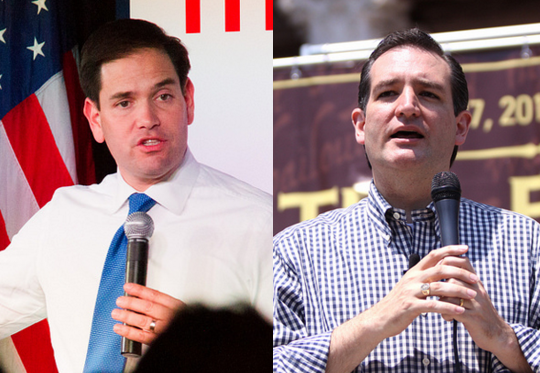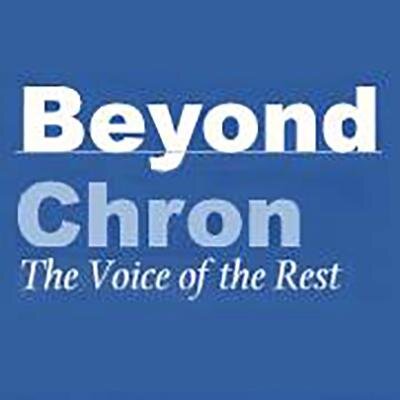Rubio, Cruz and the politics of Latino Authenticity

*This Rubio-Cruz “who-is-more-Hispanic” feud is the latest iteration of an old discussion. Falcon writes that the argument over the terms and over Latino-ness is “subject to a wide range of cultural traits from over 21 racial, class and linguistically stratified post-colonial countries. However, these pan-ethnic terms have at the same time been racialized within the United States, generating a tension between artificially viewing Latinos as either immigrants or a racial-ethnic minority.” Except if you’re running for president, in which case it’s a matter who speaks Spanish. VL
 By Angelo Falcón, Beyond Chron (9.4 minute read)
By Angelo Falcón, Beyond Chron (9.4 minute read)
The emergemce of two politicians of Cuban ancestry as serious contenders for the Presidency of the United States this year has generated a contentious debate within the Latino community as to their “Latino authenticity.” Are they really Hispanic or LINOs (“Latinos in name only)? In a recent Republican Presidential debate, Marco Rubio and Ted Cruz seemed base their Latino authenticity on their ability to speak some Spanish. Others think it is just a question of where you or your parents were born. Still others argue that you are Latinos if you say or think you are. But if it is that simple, why all of the contentiousness over this question?
Much of the discussion I see today about naming ourselves revolve around interminable debates over terminology. Should we be called “Latinos” or “Hispanics”? Are these pan-ethnic umbrella terms meaningful at all? Should “Latino” be replaced by “Latino/a,” “Latin@,” or “Latinx”? But none of these disputes seems to address the meaning of these terms as they should be applied to politicians like Ted Cruz and Marco Rubio.
Click HERE to read the full story
[Photo by NewsTaco, courtesy of Max Goldberg, Gage Skidmore/Flickr]

